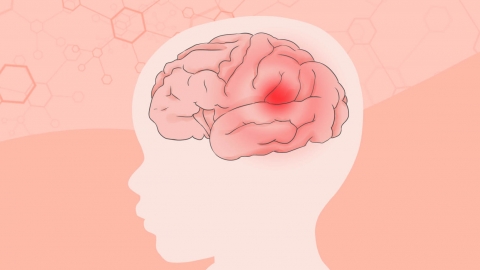What does it mean when the vagus nerve is overactive?
In general, vagus nerve excitation may be caused by emotional changes, deep breathing, physical activity, acute gastroenteritis, heart failure, and other factors. Symptomatic management usually involves general treatment and drug therapy. If discomfort occurs, it is recommended to seek medical attention promptly and receive appropriate treatment under a physician's guidance. Detailed analysis is as follows:

1. Emotional Changes
Emotional states such as tension, anxiety, and fear can stimulate the vagus nerve, triggering a series of physiological responses, such as increased heart rate and elevated blood pressure. This is a natural response of the body to stress and generally does not require specific treatment. Symptoms can be relieved through rest, deep breathing, and relaxation techniques.
2. Deep Breathing
During deep breathing, the expansion and contraction of the lungs stimulate pulmonary receptors, which send signals to the brain via the vagus nerve, thereby enhancing vagal excitation. This helps reduce heart rate and blood pressure. However, excessive deep breathing may cause dizziness or brief loss of consciousness. It is recommended to perform appropriate breathing exercises and avoid over-breathing.
3. Physical Activity
Exercise is also a common factor that stimulates the vagus nerve. Physical activity increases heart rate, elevates blood pressure, and deepens respiration, helping the body meet energy demands during exercise. After exercise, individuals may feel fatigue, thirst, or hunger. Usually, no specific treatment is required, and maintaining moderate physical activity in daily life is sufficient.
4. Acute Gastroenteritis
Acute gastroenteritis is usually caused by infection with pathogens such as bacteria or viruses. During acute gastroenteritis, the gastrointestinal tract is infected by viruses or bacteria, triggering an inflammatory response. The vagus nerve participates in regulating gastrointestinal function, and its increased excitability helps accelerate gastrointestinal motility and promote pathogen elimination, often accompanied by symptoms such as nausea, vomiting, and diarrhea. It is recommended to take medications such as ciprofloxacin hydrochloride capsules, bismuth potassium citrate tablets, and enteritis-relieving granules under a physician's guidance.
5. Heart Failure
Cardiac lesions or excessive cardiac load may impair the heart's pumping function, leading to heart failure. During heart failure, the heart's ability to pump blood declines, resulting in decreased blood pressure and inadequate perfusion. To maintain stable blood pressure and heart rate, vagal activity increases, attempting to adapt to this condition by slowing heart rate and lowering blood pressure. Symptoms may include dyspnea, edema, and fatigue. It is recommended to follow medical advice and use medications such as furosemide injection, captopril sustained-release tablets, and metoprolol tartrate tablets to alleviate symptoms.
It is recommended to maintain a regular lifestyle, go to bed early and wake up early, avoid staying up late and excessive fatigue, which helps maintain good health.








